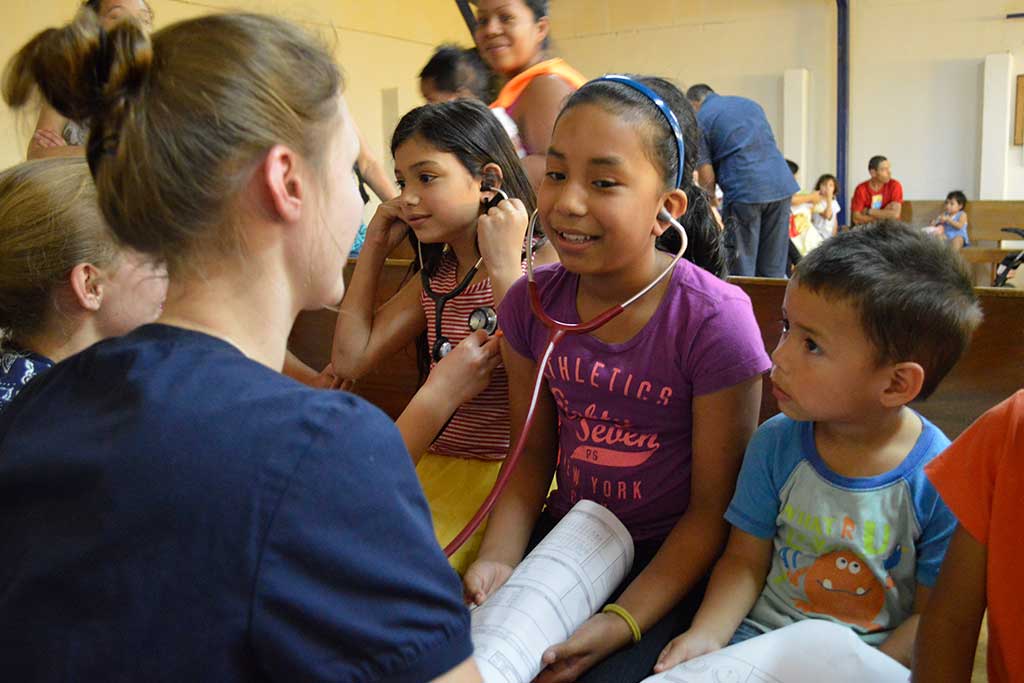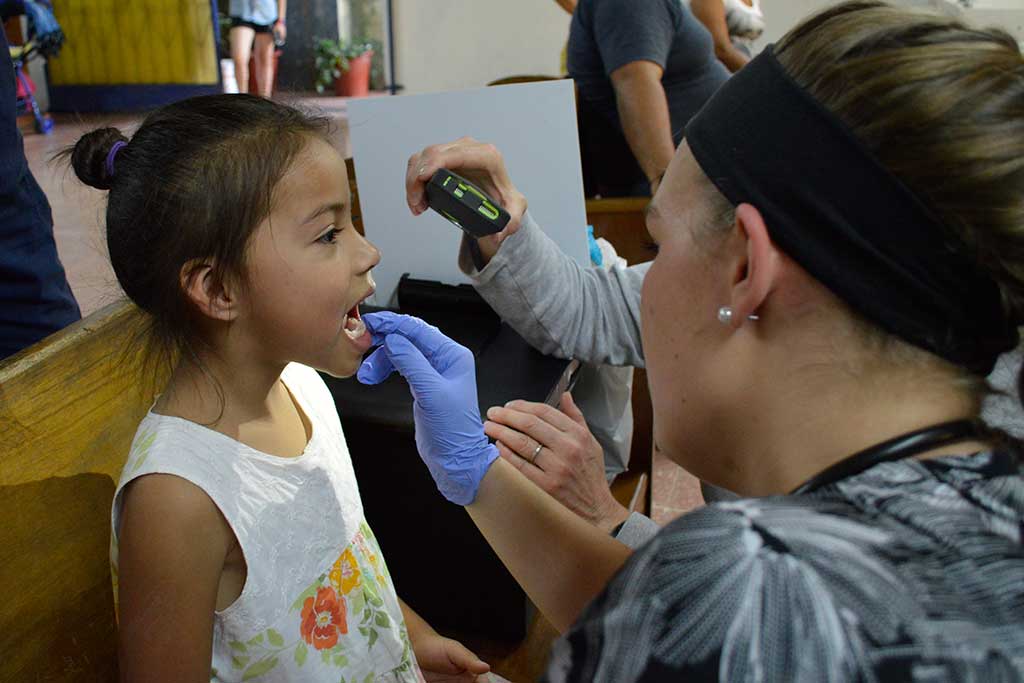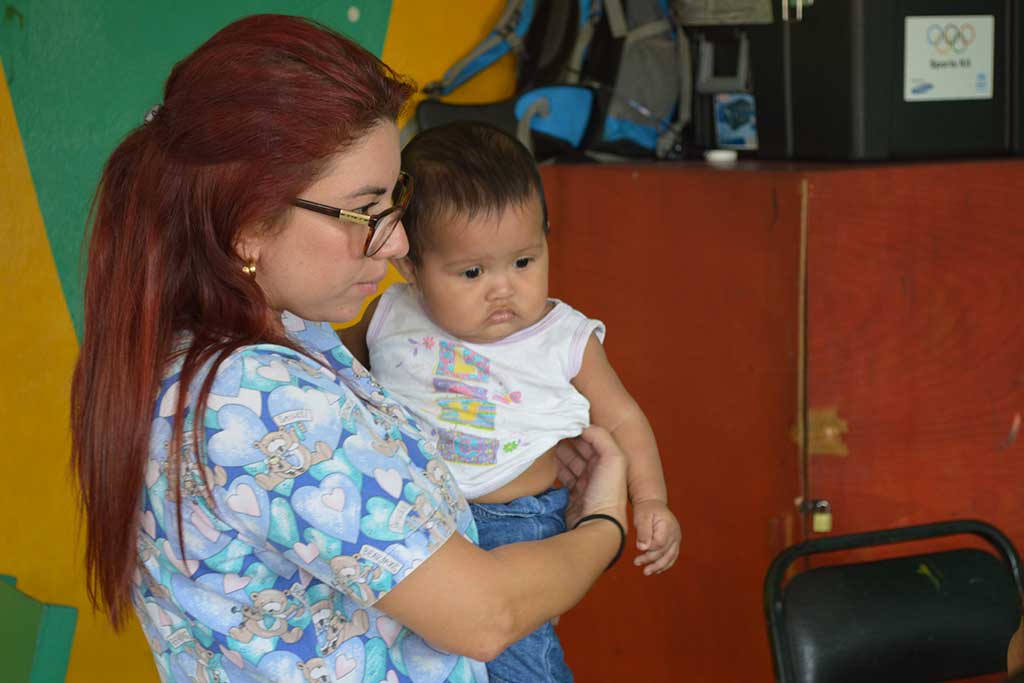Access to affordable healthcare is a commonly-contested social issue, which often dominates the political stage during elections in the United States. Too many people leave medical concerns unaddressed as a result of poor insurance policies or no financial aid at all. The socioeconomic inequality that the field faces is a large part of what drew me to medical school.
Advocating for women’s health issues, educating communities about balanced lifestyle practices, and closing the access gap are all reasons that I hope to open my own practice one day. But I am only bound for medical school this fall. There’s a lot to learn before I can play a role in shaping the healthcare system of my community.
However, as I was seeking to diversify my own experiences, I began thinking about the importance of medical care to the global community. Public health is a shared human experience; it defies cultural difference. Because of this, affordable healthcare is not a national but an international concern. Every day global citizens are denied the medical treatment they need.

Barriers to treatment vary, but the result does not. As a pre-med student, I am not yet qualified to practice on patients in my own community, but that doesn’t mean I can’t step outside the system to help in other ways. In many areas of the world, a combined lack of resources, awareness and transportation prevent rural communities from receiving even the most basic medical services.
Why wait for another four years to start helping? I knew the need for medical aid was great and far-reaching, so I set my eyes on international volunteer projects that I could be a part of before the fall term. I found Máximo Nivel’s programs, based in Latin America, and was pleased to discover that thanks to the supervision of their medical specialist, I was allowed to participate in their weeklong medical campaigns without being a licensed professional to work.
Eager to work under the supervision of local medical professionals, I packed my bags for Costa Rica. During my undergraduate education, I had interned in a clinical setting. Though I learned a lot about the American healthcare system through that experience, volunteering for a medical campaign would offer me a whole new form of field experience. But my desire to volunteer abroad was not simply for the resume line.
The whole reason I was pushing my way through years of medical training was to address a public need. By working with Máximo, I was able to do just that on an accelerated timeline. I didn’t need a prestigious title to lend a helping hand. And even though a week might not sound like long enough to make a lasting difference, I was pleasantly surprised by the impact of the program I chose.

The volunteer initiative I was involved in was not based at a formal medical institution. I had originally pictured myself helping out at a hospital, clinic or assisted living facility. Instead, I got to work with local communities more directly, and it truly transformed my outlook on the most effective ways to implement community relief efforts.
The medical campaign program was different from other volunteer arrangements in that people didn’t come to us; we came to them. I had never felt so connected to a cause. I was working with patients in their own environments. Without the obstacle of paperwork or the sterility of an office setting, I became more truly connected to the communities I was serving.
Traveling to the neighborhoods around San José was community outreach in its purest form. We weren’t talking about equal access as an abstract goal. We were physically closing the gap by bringing healthcare to the doorsteps of poorly served communities. We were making an impact at the source of the problem.
As these neighborhoods do not have local healthcare facilities and most of their residents are immigrants not covered by Costa Rica’s healthcare system, makes them particularly vulnerable and underserved. Lack of resources, infrastructure and education come together to create a real problem that far surpasses financial strain. To offer preventative medicine and health education to these communities is to spur long-term solutions. The beneficiaries of this type of outreach are the most deserving—those who wouldn’t have easy access to a clinic, let alone the financial resources to pay for a private vaccination or dental appointment.

Working alongside local practitioners, I was more than a medical assistant. We were acting as community liaisons, not only offering medical resources but bringing them where they were most needed. I helped doctors distribute medications and offer general care and companionship, as well as conducting workshops on basic hygiene.
By including health education in their medical campaigns, local doctors are creating sustainable change. Every aspect of our wellbeing is connected, so something as seemingly small as taking better care of your teeth can totally transform the body’s overall health. You’d be surprised by how much practical help can be offered in just one afternoon.
Eliminating the medical space of a clinic or hospital when possible, can also make outreach efforts appear less foreign and intimidating. I really appreciated the opportunity to serve these communities in a more inviting space. I learned a lot about true community service by meeting public needs on the ground and equipping secluded villagers with the tools and education necessary for a healthier life.
